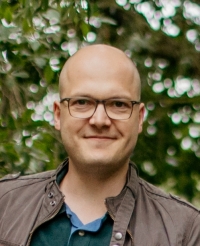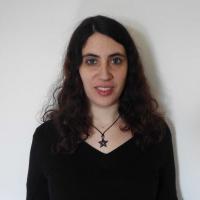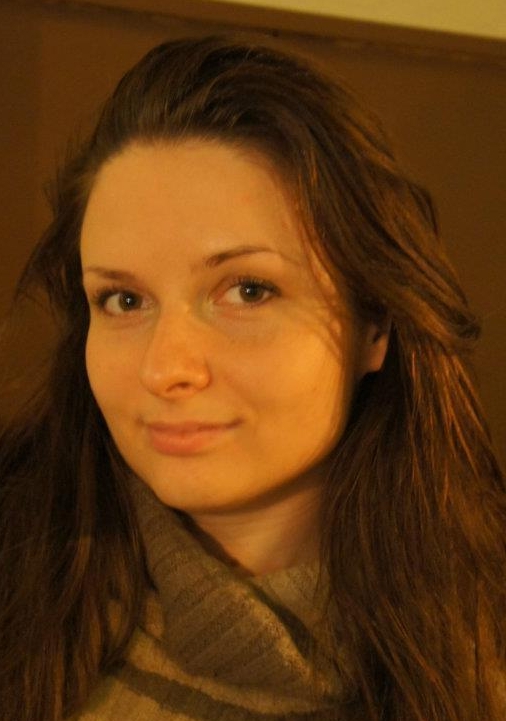This website uses cookies that store information about your usage of the page. By continuing to use this page you confirm you are happy with that.
Review and change how cookies are used.
The workshop is organised by the team of researchers that is listed on this page. The organisation committee would like to express a particular thank you to all members of the programme committee for their help in maintaining the high standards of this workshop.

Alessandra is a postdoctoral researcher at the University of Naples Federico II (Italy). She has a PhD as part of the Marie Sklodowska-Curie Research ETN SECURE project (https://secure-robots.eu/) at the University of Hertfordshire (UK), under the supervision of Prof. Dr. Kerstin Dautenhahn. She is a Visiting Lecturer at University of Hertfordshire. Alessandra received her B.Sc. and M.Sc. degrees in Computer Science from the University of Naples Federico II. Her research interests include multi-agent systems, social robotics, Human–(Multi) Robot Interaction, home companion and user profiling. She is the team leader of RoboCup team “Bold Hearts” at the University of Hertfordshire (UK), and TC member of the RoboCup Humanoid League since 2021. She is Virtual Organizing Chair of IEEE RO-MAN 2021 conference, and she has been Registration Chair and Social Media Responsible of IEEE RO-MAN 2020.

Patrick is the manager of the Robot House research facility at the University of Hertfordshire (UK). He is also a permanent Research Fellow in the Adaptive Systems Research Group and a Visiting Lecturer at the School of Physics, Engineering and Computer Science. His research interests include systems integration in heterogeneous environments, interaction architectures and behaviour coordination, and the social credibility of companion robots. He is currently an advisory board member of the Norwegian project Human Interactive Robotics in Healthcare and is a CoI of the UKRI TAS hub's pump priming project Kaspar explains. He was also a CoI of the AAIP-funded feasibility project Assuring safety and social credibility. Patrick was previously a postdoctoral researcher at the cluster of excellence Cognitive Interaction Technology (CITEC) and a member of the Cognitive Systems Engineering group working on the large-scale project Cognitive service robotics apartment. Patrick received his Ph.D. on the topic of an Integrated concept of spatial awareness which originates from research conducted in the Applied Informatics Group and SFB 673 Alignment in Communication at Bielefeld University where he also received a master's and a bachelor's degree in computer science.

Sílvia is a Visiting Lecturer at the University of Hertfordshire. She received an Industrial Engineering degree at the Universitat Politècnica de Catalunya (UPC), a PAIR Master degree in Automated Production and Robotics at the Fundació CIM - UPC and a Robotics and Automation Master degree at the Universidad Carlos III in Madrid. She is also finishing a Psychology degree at the Universitat Oberta de Catalunya (UOC). She was previously part of the now finished EU Horizon2020 BabyRobot project. Her research interests include social robotics, Human-Robot Interaction and design of robotics behaviours for children with autism.

Marcus has studied Computer Science, with a minor in Business at the University of Ulm and Humboldt-Universität zu Berlin, in Germany. His focus was on artificial intelligence and robotics, he was team leader of a group of staff and students of a robot soccer team competing in world championships. There, he worked on his Diplom (corresponding MSc) on "Multi-hypotheses particle filter for goal modeling for a humanoid soccer robot". He later obtained a PhD with the topic of "Autonomous and Intrinsically Motivated Robots for Sustained Human-Robot Interaction" from the University of Hertfordshire - on a PhD scholarship of Computer Science. His focus was on the fully autonomous behavior generation for robots to interact with humans based on information-theoretic measures. Till today, he remained in the RoboCup community where he focuses on machine learning and on developing a framework based on ROS 2. His current research interests include Robotics, Human-Robot Interaction, Artificial Intelligence, Machine Learning, Information Theoretic Approaches to AI and Intrinsic Motivation.

Gabriella is a Research Fellow at the Adaptive Systems Research Group and a Visiting Lecturer at the School of Physics, Engineering and Computer Science at the University of Hertfordshire. Her research interests include HRI and robot-assisted therapy. She has expertise in the development of socially acceptable companion robots through the design of biologically inspired credible social behaviour as well as in experimentally evaluating user acceptance. Her experience was gained in European projects such as LIREC and BabyRobot, in addition to the EPSRC funded project Trustworthy Robotic Assistants.